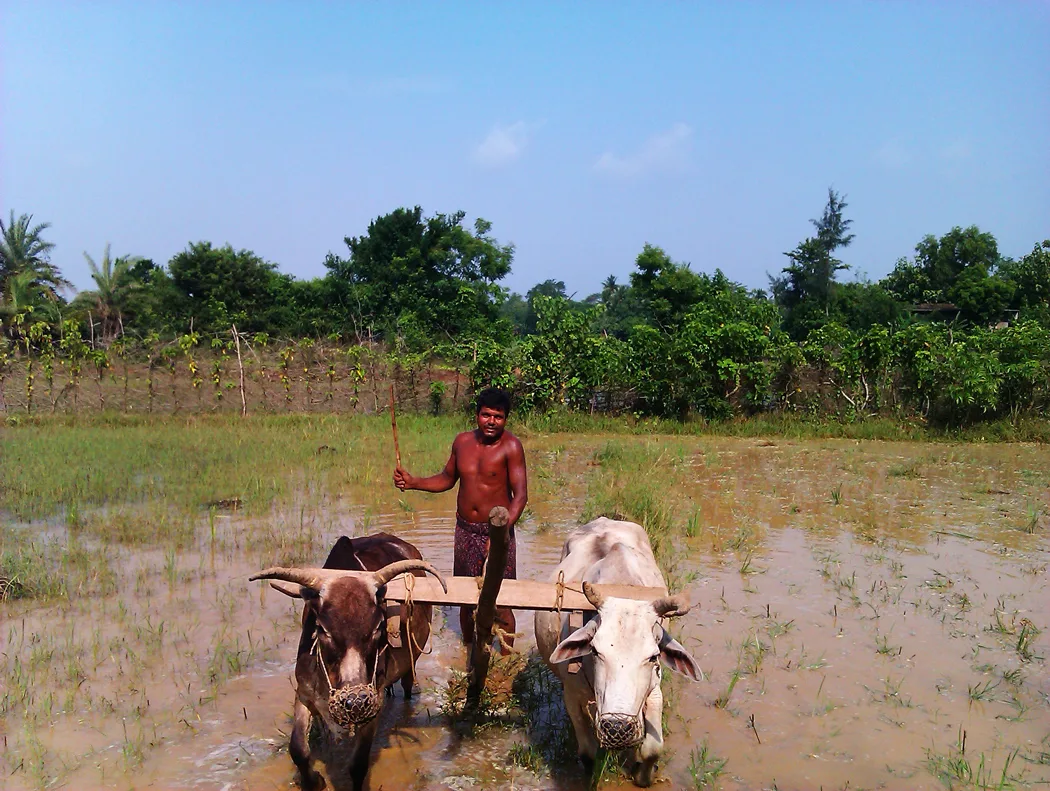Farmer Ganpatram Bheda, 66, fears that he will lose his 0.8 hectares of land in north-west India after low rainfall and extreme cold in recent years have affected the crops.
As small-scale Indian farmers like Bheda grapple with growing climate uncertainty, researchers this week called for a robust scheme for rural jobs, crop insurance and mental health care. These measures are required to ease rising distress and suicide in farming communities, writes Reuters.
A new report links rainfall deficits to higher suicide rates in farmers across India’s drought-prone states. Researchers said climate change was turning “farming into an extremely risky, potentially dangerous and loss-making profession”.
Farmers are among the most vulnerable groups in India to suicide, says the report by the London-based International Institute for Environment and Development (IIED), as recurring droughts affect their health and emotional well-being.
“For more than two decades, India has struggled with suicide among rural farmers, as consecutive years of drought, poor crops and expensive animal feed have led to debt and psychological distress,” the report said.
Nearly 11,000 farmers and agricultural workers took their own lives in 2021, averaging around 30 deaths a day, according to India’s latest crime data cited in the IIED report.
But experts estimate that the real numbers are far higher.
Madhura Swaminathan, an economist at the Indian Statistical Institute in Bengaluru, said the official figures only include reported cases.
There is a need for more solid research into the connection between suicide and climate change in order to better plan ways to make Indian agriculture more climate-resilient, she says.
Ritu Bharadwaj, principal researcher at IIED, noted that the consequences of climate change are “a stress multiplier”.
Although droughts are not a new problem, “climate change has made them more intense and more frequent and they have increased their geographic distribution,” she said in a telephone interview.
More than 250 million people in India, or almost half of all workers, are employed in agriculture and related sectors, according to India’s latest census in 2011 – The vast majority depend entirely on agricultural income for survival.
According to the IIED report, new measures are needed to protect this vast community as the planet warms and it points out that early warning systems and insurance can provide protection against extreme weather.
Although the Indian government has some support programs in place for farmers, including crop insurance and a rural job guarantee scheme, these suffer from poor budgeting and uneven implementation, farmers’ rights campaigners say.
India is still not mapping the “dangers, risks and vulnerabilities” affecting farmers at “a hyper-granular level”, says Abinash Mohanty, head of climate change and sustainability at IPE Global, an international development organisation.
This limits the understanding of the real effects of climate change on people, he added.
In recent years, environmental groups have equipped some farming communities with weather information and alerts via text messages, as well as resilient seeds for “climate-smart” farming.
State agricultural research institutions also provide weather-based advice on crops.
Nevertheless, the drought still forces many farmers to move to cities to find work, while some see no way out and take their own lives.
The probability that these cases of suicide will increase in the future is high, says Bharadwaj from IIED, whose assessment of increasing risk is based on rainfall variations and suicide data.
Her team studied rainfall patterns between 2014 and 2021 in the drought-prone states of Chhattisgarh, Karnataka, Madhya Pradesh, Maharashtra and Telangana, which recorded the most suicides among farmers, finding more cases during periods of below-normal rainfall.
The climate is a factor, explained Bharadwaj.
But vulnerabilities such as poverty, illiteracy and lack of social safety nets, or knowledge of how to access them, combine to create a difficult situation.
The IIED report recommends a shift from insuring against bad crops to insuring against bad weather, so that farmers get an immediate payout when it hits, regardless of actual losses.
India’s rural job guarantee scheme – which promises 100 days of paid work a year to every rural household – could also be a shock absorber, the report said.
Peoples’ Action for Employment Guarantee (PAEG), an association of academics and activists monitoring the implementation of the scheme, recorded a 30 percent drop in the number of jobs in 2023 up to April, compared to the same period in 2022.
There have also been problems with workers who have not been paid, as attendance is now recorded using an app and some rural areas have poor telephone networks, says PAEG member M.S. Raunaq.
IIED researcher Bharadwaj said she had found that regions where jobs were available under the scheme recorded lower suicide rates despite erratic rainfall.

